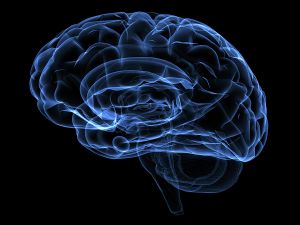November 26, 2024
by Patricia Tomasi

A new study published in Cell looked at how stress disrupts engram ensembles in lateral amygdala to generalize threat memory in mice. “We examined how acute stress impacted fearful memories,” study author Sheena Josselyn, Senior Scientist at Hospital for Sick Children told us. “We found that acute stress before a fearful event generalized the memory of this fearful event. That is, the subjects reacted fearfully both to the cues that predicted the fearful event and also safe cues.”
[More]
March 19, 2024
by Patricia Tomasi

A new study published in Cell and Tissue Research looked at the identification of vagal afferent nerve endings in the mouse colon and their spatial relationship with enterochromaffin cells. “The purpose of this study was to identify for the first time, the sensory nerve endings of the vagus nerve in the inner lining (called the mucosa) of the colon,” study author Nick Spencer told us.
[More]
January 9, 2024
by Patricia Tomasi

A new study published in the Journal of Translational Psychiatry looked at the spatiotemporal expression patterns of anxiety disorder-associated genes. “There are a substantial number of neuroimaging and microstimulation studies that identify neural circuits linked to anxiety as a trait or specific anxious behaviors such as pessimistic decision-making,” study author Kalyani B. Karunakaran told us.
[More]
October 10, 2023
by Patricia Tomasi

A new study published in the Journal of Immunity looked whether there was a potential link between early life stress and the onset of mental disorders. “Individuals who suffer childhood abuse/neglect are much more likely to develop mental diseases, including depression and schizophrenia,” study author Wok-Suk Chung told us. “Additionally, stress has been shown to elicit a decrease in the number of excitatory synaptic connections in the brain and impair their functions. However, the underlying mechanism by which early life stress induces synaptic and behavioral symptoms later in life have been unclear.”
[More]
May 24, 2022
by Patricia Tomasi

A new study published in Cell Reports looked at early stress-induced impaired brain functioning. “We were trying to figure out how the long-lasting, life-long adverse effects of transient early-life stress on behavioral and endocrine responses to adult stresses come about,” study author Tallie Z. Baram told us. “This is important, because these changes are tied to mental illnesses.”
[More]
February 22, 2022
by Patricia Tomasi

Up to one billion people worldwide suffer from neurological disorders. In the United States, more than one million adults are diagnosed annually with a chronic brain disease or disorder. Studying the brain is difficult but new tools are emerging. A recent study published in the Journal of Molecular Psychiatry looked at how genetically encoded sensors enable micro and nano-scopic decoding of transmission in healthy and diseased brains.
[More]
January 31, 2022
by Elizabeth Pratt

Botulinum toxin is a medicine that is often used for wrinkles, to help ease migraines, for muscle spasms, and to assist with incontinence.
Now research published in Scientific Reports has found that people who had botox injections across four different areas of the body reported less anxiety than their peers.
[More]
January 25, 2022
by Patricia Tomasi

A new study published in the Journal of Neuroscience looked at visual processes in the brain. “We were focusing particularly in the older part of the brain or mid-brain, which is important for lower-order animals such as frogs, lizards, and birds,” study author Masatoshi Kasai told us. “The superior colliculus is the center for sensory integration and sensory-motor transformation.”
[More]
November 2, 2021
by Patricia Tomasi

A recent study published in the Journal of Developmental Cognitive Neuroscience looked at white matter in infancy and its association with language outcomes in kindergarten. “Our study conducted a five-year longitudinal investigation of children from infancy to examine how early brain structure (here focusing on white matter axonal connections between different brain areas) relates to children’s later language outcomes at the start of formal schooling (i.e., kindergarten),” study author Dr. Jennifer Zuk told us.
[More]
October 12, 2021
by Patricia Tomasi

A new study published in the Journal of Brain Imaging Behaviour looked at sexual assault and white matter hyperintensities among midlife women. “Adverse mental health implications of trauma and sexual assault have been studied extensively over the years, yet much of this research wasn’t spotlighted before the advent of the #MeToo movement several years ago,” study author Dr. Rebecca Thurston told us. “There has been some work, including my own research, which linked experiences of trauma and sexual assault to the underlying cardiovascular disease risk in women. However, much less is known about what these traumatic experiences may mean for a woman’s risk of serious brain disorders such as stroke and dementia.”
[More]